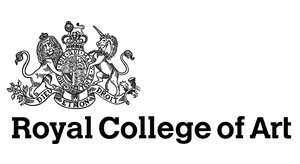A Critical Investigation into the Future of Architecture
Kensington, Battersea, White City
London SW7 2EU
United Kingdom
Who can I become in such a world where the limits of the subject are set out in advance for me? By what norms am I constrained as I begin to ask what I may become? And what happens when I begin to become that for which there is no place within the given regime of truth?
–Judith Butler, “What is Critique?” (2001)
The Master in Research in Architecture at the RCA is a critical investigation into the future of architecture: its limits, its norms, and its possibilities.
A uniquely interdisciplinary degree, the MRes is the only postgraduate course taught across all four schools of the RCA. Students work with, and will learn methods, practices and theories from Architecture, Arts and Humanities, Communication, and Design.
We invite applications from prospective students interested in joining the School of Architecture’s active concerns with urban culture, cohabitation, extractive accumulation, material and social inequality, demographic and environmental change, spatial semiotics and generational justice. The programme attracts a broad range of early and mid-career architects, spatial practitioners, and urban scholars who see an advanced research degree as an opportunity to develop research for practice, or as preparation for PhD study.
The MRes Architecture programme is taught through a set of seminars, workshops, and practice-led studios that refine methodological acuity, speculative criticality and theoretical rigour. Students lead a term-long group studio-based research project, and work through colloquiums, crits, and one-to-one tutorials to define, design and deploy their year-long research thesis.
MRes Architecture Faculty: Dr Adam Kaasa
MRes RCA Faculty: Dr Esther Teichmann (Head of Programme), Dr Nicky Coutts (School of Arts and Humanities), Dr Emily Candela (School of Communication), Dr Laura Ferrarello (School of Design)
Guests 2017-18: Jane Hall, Julia King, Shumi Bose, Alpa Depani, Melissa Meyer, Pooja Agrawal, Rachel Roe, Yara Sharif, Sayan Skandarajah, Tom Dobson, Alex Rhys-Taylor, David Burns, Shumi Bose, Amica Dall, Cassim Shepard, Platon Issaias, John Bingham-Hall, Mona Sloane, Rose Lejeune, Jordan Rowe, Duncan Harte, Alex Chapman, Tarsha Finney, Godofredo Perreira, Pablo Sendra, Petra Marko
2018-19 Project: We Cannot Work Like This: Decolonial Practices and Degrowth
Collaboration with “Coltan As Cotton,” Contour Biennial 9, Mechelen
Curated by Nataša Petrešin-Bachelez, organised by Nona Kunstencentrum
Participating Institutions: City University of Hong Kong; École européenne supérieure d’art de Bretagne, Rennes; École de recherche graphique, Brussels; Academy of Arts, HISK, Ghent; Royal Academy of Fine Arts, Antwerp; St Lucas Academy, Antwerp; Thomas More University of Applied Sciences, Mechelen
In this cross-disciplinary seminar students will work collaboratively in each of their institutions on a proposal for sustainable approaches in relation to cultural institutions and their own practices, looking at sustainability through the self-reflexive, anti-capitalist and anti-racist lens. The launch of the seminar will take place at the Swamp Pavilion, in the frame of Venice Biennial of Architecture 2018, which is a project by Nomeda and Gediminas Urbonas. The second meeting takes place at the RCA in January 2019. And the seminar concludes in Mechelen, Belgium in May 2019.
2017-18 Project: After the Creative City?
Collaboration with New River Studios, London with contributions from We Made That, Terrence O’Rourke, and the Greater London Authority
MRes Architecture students asked what comes after the creative city? In cities like London, financialised land and housing markets contribute to culture’s expulsion from the city. 35% of grassroots music venues have closed since 2007, 58% of LGBTQI venues since 2006, and a projected 30% of artist studios by 2019. Their study looked to two sites in the North London Borough of Haringey. The Wards Corner Regeneration plan to close a Latin American market sparked a UN Human Rights investigation that warned this closure “represented a threat to cultural life.” Less than 500m away, Tottenham is the pilot for “Creative Enterprise Zones” that is intended to lure and retain creative industries in London. This research project asks what counts as culture in a site that both erases and props it up.
Applications accepted until the end of July 2018
Find out more or apply here.


